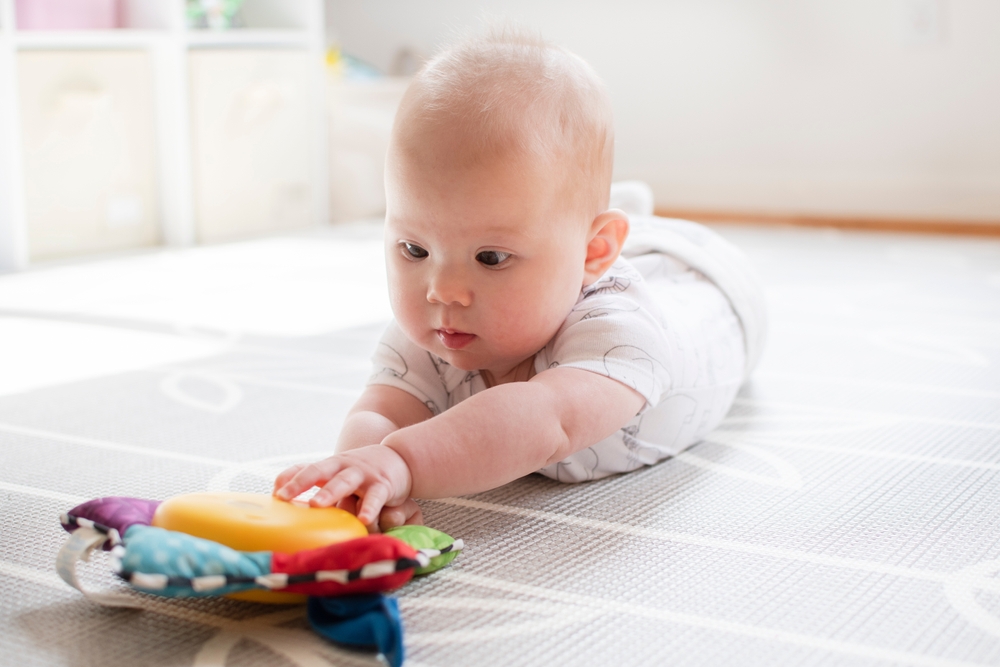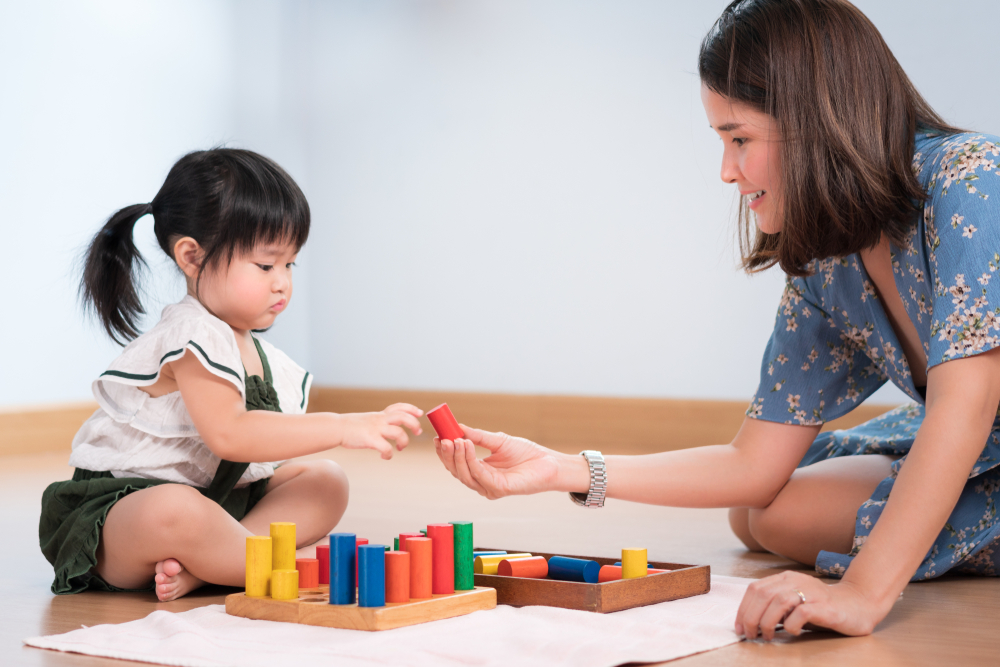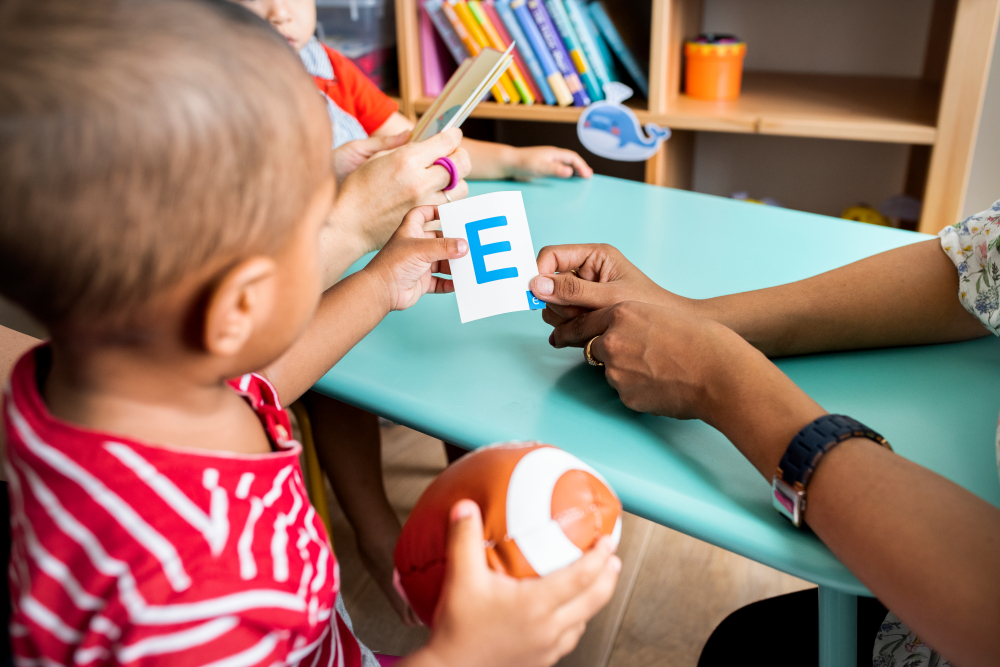Our
Curriculum
Adapted from psychological theories on cognitive development and real-life lessons learned by early childhood professionals, our academic curriculum was created to enrich your child’s development during their most important years.

Your Child’s Development
Children who attend I’m Just a Kid experience an increased likelihood of learning and retention. Comprising four essential elements – a research-based curriculum, a clear scope and sequence, comprehensive lesson plans, and a self-administered pre- and post-assessment – attending I’m Just a Kid offers your child the best educational foundation possible.
A Research-Based Curriculum
While daycares in San Antonio and around the world provide basic childcare, I’m Just a Kid takes that to the next level with a comprehensive curriculum. Our research-based curriculum was developed through a rigorous process that incorporates the latest research findings and best practices in education. A reliable curriculum is consistent and dependable, guaranteeing that all learners have an equal opportunity to achieve success. A valid curriculum accurately measures student progress and achievement, aligning with relevant standards and learning goals.
The Best Practices Chart of Education offers a framework for integrating evidence-based strategies into the curriculum to enhance student learning outcomes. By utilizing research-based, reliable, and valid curricula that incorporate the Best Practices Chart of Education, we can ensure that we are providing the best possible learning experiences for our children.
Enroll now or Schedule a tour today!
(726)215-8874

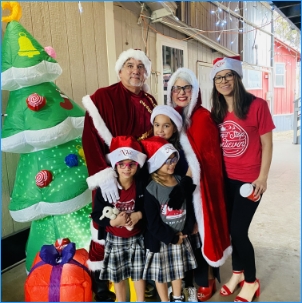
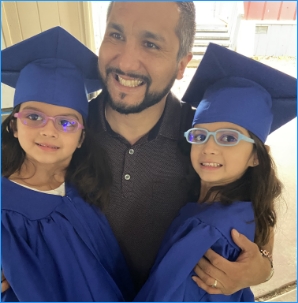
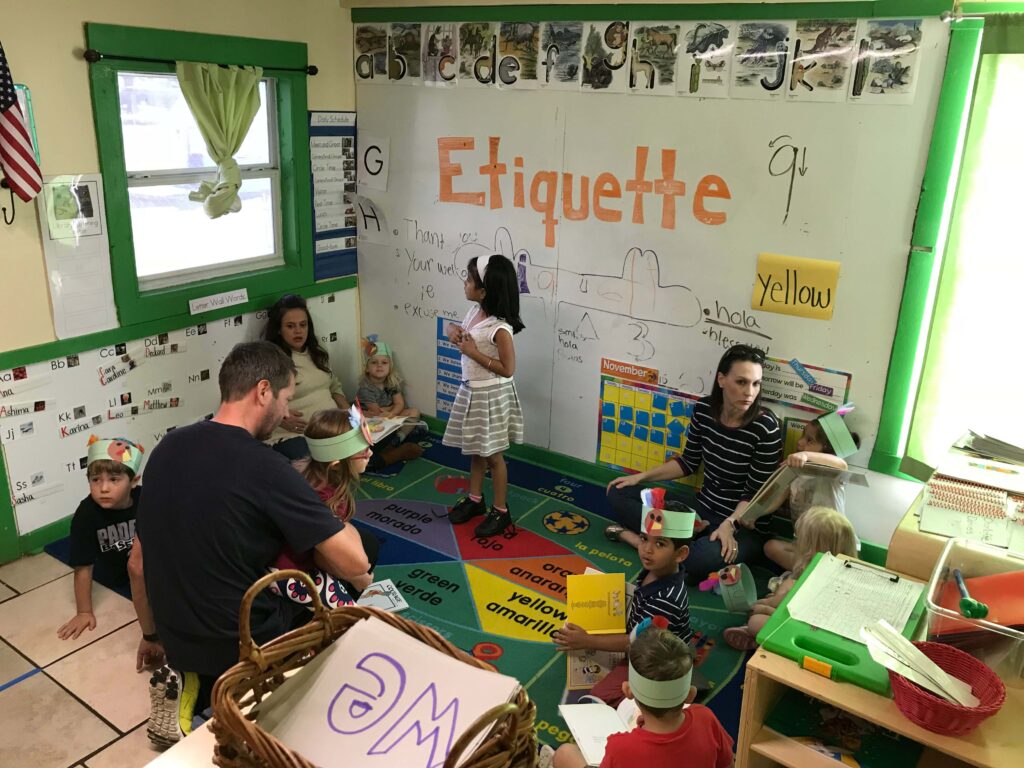
A Clear Scope and Sequence
A well-designed curriculum offers a clearly defined scope and sequence that considers the latest research in child development while incorporating a child’s interests and essential learning objectives.
Our curriculum is rooted in Piaget’s theory of cognitive development, serving as the foundation for 12 overarching themes and 52 topics covered throughout the year. Each of these 52 topics is thoughtfully designed for in-depth exploration over a period of four to five weeks to ensure that each child has ample time to engage with and thoroughly explore the material.
Furthermore, this approach enables us to cover a total of 260 subjects over the course of the year, with each topic building upon the knowledge gained from the previous one.
To enhance effective learning, our curriculum follows a structured sequence, progressing from overarching themes to their corresponding topics and then to specific subjects. We employ a trilingual approach, teaching these subjects in three languages, including Spanish. Additionally, we incorporate baby sign language with color coding and symbols to reinforce the learning experience.
In addition to our core curriculum, we integrate supplemental materials such as Zoo-Phonics, which emphasizes phonological awareness—a key predictor of reading success. This comprehensive approach ensures that our students engage in developmentally appropriate learning through play, making the process both engaging and enjoyable for them.
Written Lesson Plans
Written lesson plans are critical components of effective teaching, and we carefully plan and structure lessons to achieve maximum learning outcomes. Our lesson plans are research-based and draw on Madelyn Hunter’s lesson plan cycle, which includes an introduction, content presentation, guided practice, independent practice, and closures. While these elements provide a solid framework for our lessons, each teacher is also encouraged to add their unique style of teaching to ensure student engagement and effectiveness.
Our lesson plans are organized into three circles, each with a distinct focus.
- Circle #1 is the introduction for the day, which includes a review of key concepts such as alphabetic knowledge (AK), shapes, colors, numbers, and literacy. We also include a book in English, Spanish, and sign language to help reinforce these concepts and provide a trilingual learning environment.
- Circle #2 is phonological awareness focused, a critical predictor of reading success.
- Circle #3 is the closing of the day, providing a chance to reinforce the key concepts covered in the lesson and help ensure that students can retain and maintain what they have learned.
By structuring our lessons this way, we can provide a total “gestalt” learning experience that is rooted in brain research and designed to maximize learning outcomes for our students.
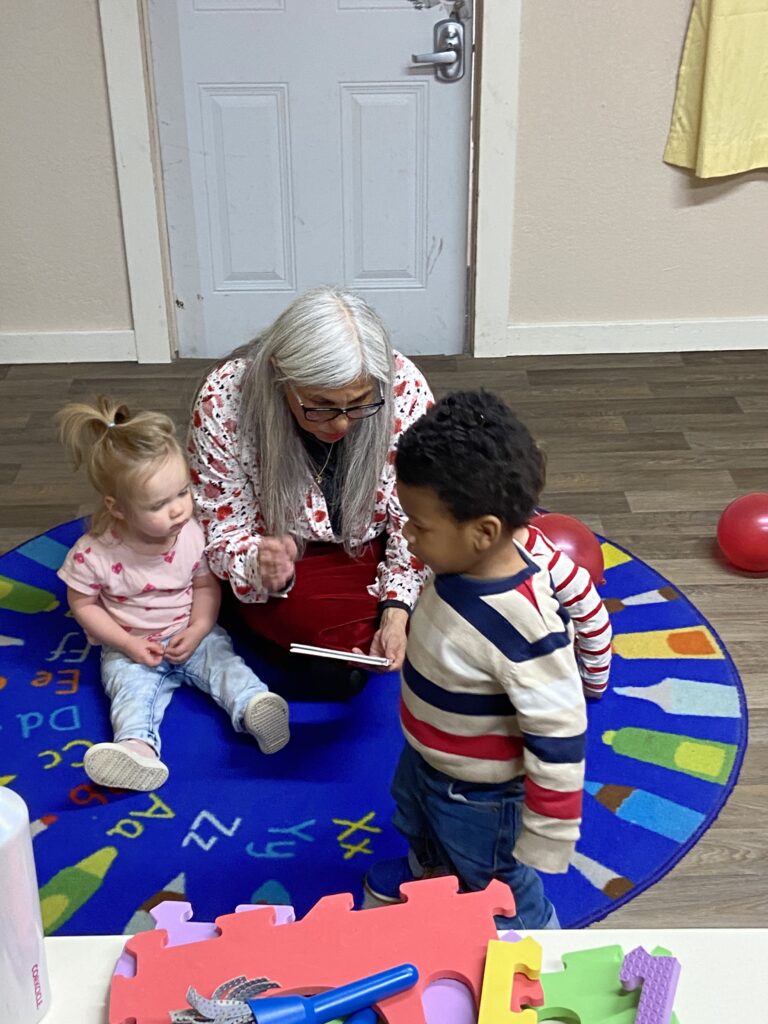
A Pre- and Post-Assessment
Assessments are essential tools that enable us to monitor students’ progress, pinpoint their strengths and weaknesses, and modify their teaching approach if needed. We utilize pre- and post-assessments to ensure our students receive the best possible education. The purpose of the pre-assessment is to determine a child’s developmental stage, allowing us to tailor our teaching approach to their specific needs. To achieve this, we engage in observational play during their “tour,” assessing where they are in their development and identifying areas requiring attention. On the other hand, the post-assessment serves to evaluate the effectiveness of our teaching and curriculum, enabling us to make necessary adjustments. For instance, at the end of each year, we conduct graduation ceremonies for each class, reviewing the developmental milestones achieved. These benchmarks vary by age group, with infants focusing on milestones like walking and talking, toddlers achieving self-sufficiency, and pre-K students mastering skills such as reading, numeracy, and fine motor abilities like cutting and pencil grasp. By incorporating both pre- and post-assessments and emphasizing developmental benchmarks, we deliver a comprehensive and effective education to all our students.
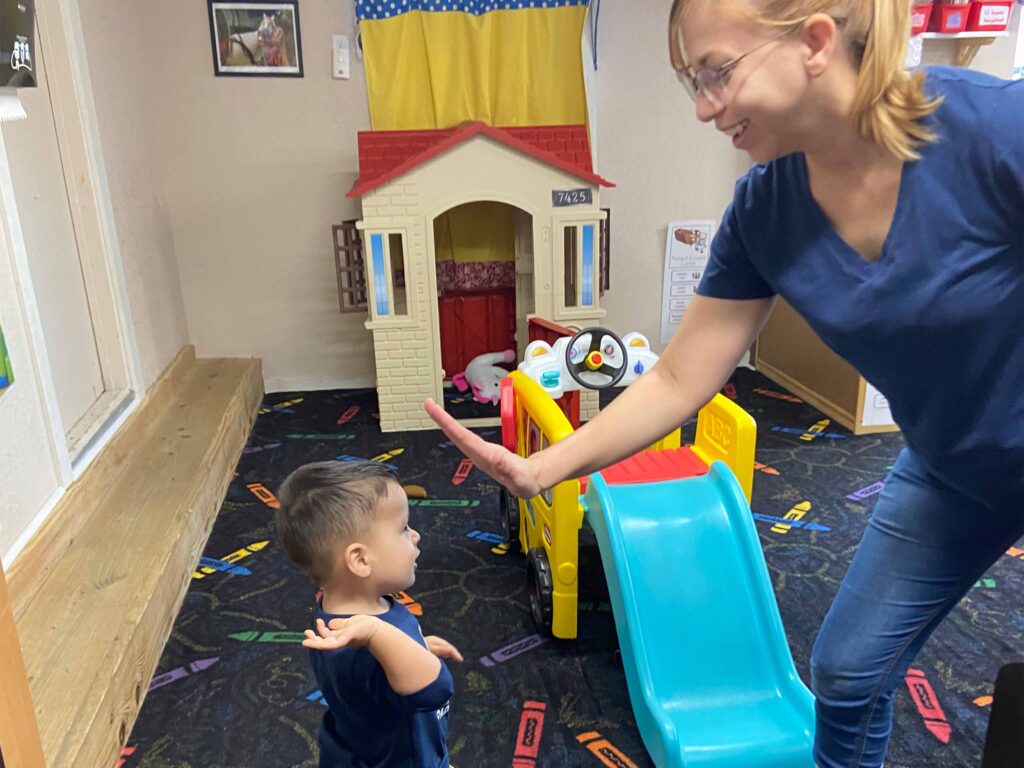
Developmental Areas
Our teachers work on the following developmental areas by creating a supportive and engaging learning environment, providing appropriate materials and activities, and fostering positive relationships with each child. We have a full 5 year development plan, where we monitor key developmental milestones like:
- Cognitive = intellect
- Socio-emotional = interactions with others based on feelings about themselves
- Language = receptive- what they understand and expression- how they speak
- Gross motor = large muscle movement, rolling, crawling, walking, running, jumping
- Fine motor = visually tracking, grasping, releasing objects, coloring, and reading
- Self-Help Skills = crying for communication, holding a bottle, feeding themselves, potty training, wiping their nose, washing hands, dressing self

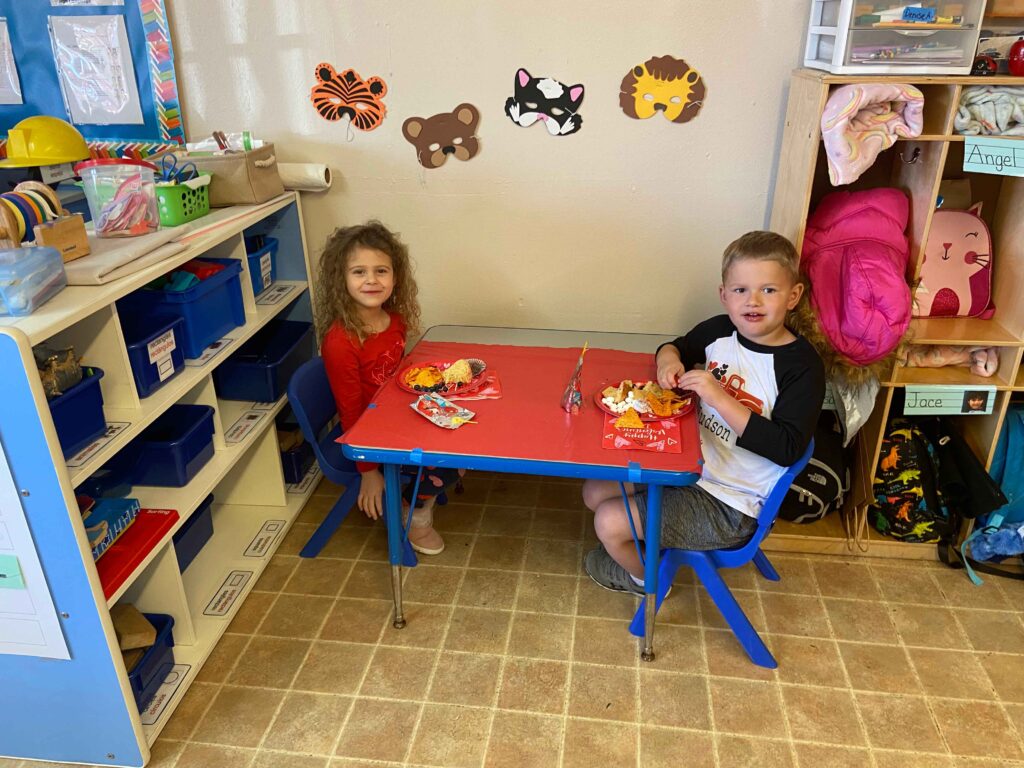
Our Curriculum
Adapted from psychological theories on cognitive development and real-life lessons learned by early childhood professionals, our academic curriculum was created to enrich your child’s development during their most important years. Children who attend I’m Just a Kid experience an increased likelihood of learning and retention.
Our curriculum comprises four key components:
• A Research-Based Curriculum
• A Clear Scope and Sequence
• Written Lesson Plans
• A Pre- and Post-Assessment self
Our Classrooms
It starts at the tour! We encourage you to bring your child with you so we can play together. This is part of our pre-assessment to determine where they are developmentally (across all 6 areas of growth) so we know how to teach them. Then, once enrolled, they will be placed in a classroom with children who complement their skills. And finally, the teacher targets their needs and adds their style of teaching while using our curriculum. Our teachers learn 13 positive guidance techniques because we know that each child is unique. We know that what works for one child, may be different for another. We are always prepared.
Most importantly, we use positive guidance in all our classrooms. Positive guidance is a powerful tool in shaping children’s behavior and building their self-esteem. By focusing on rewarding appropriate behavior, children learn to associate their actions with positive outcomes, encouraging them to repeat those behaviors.

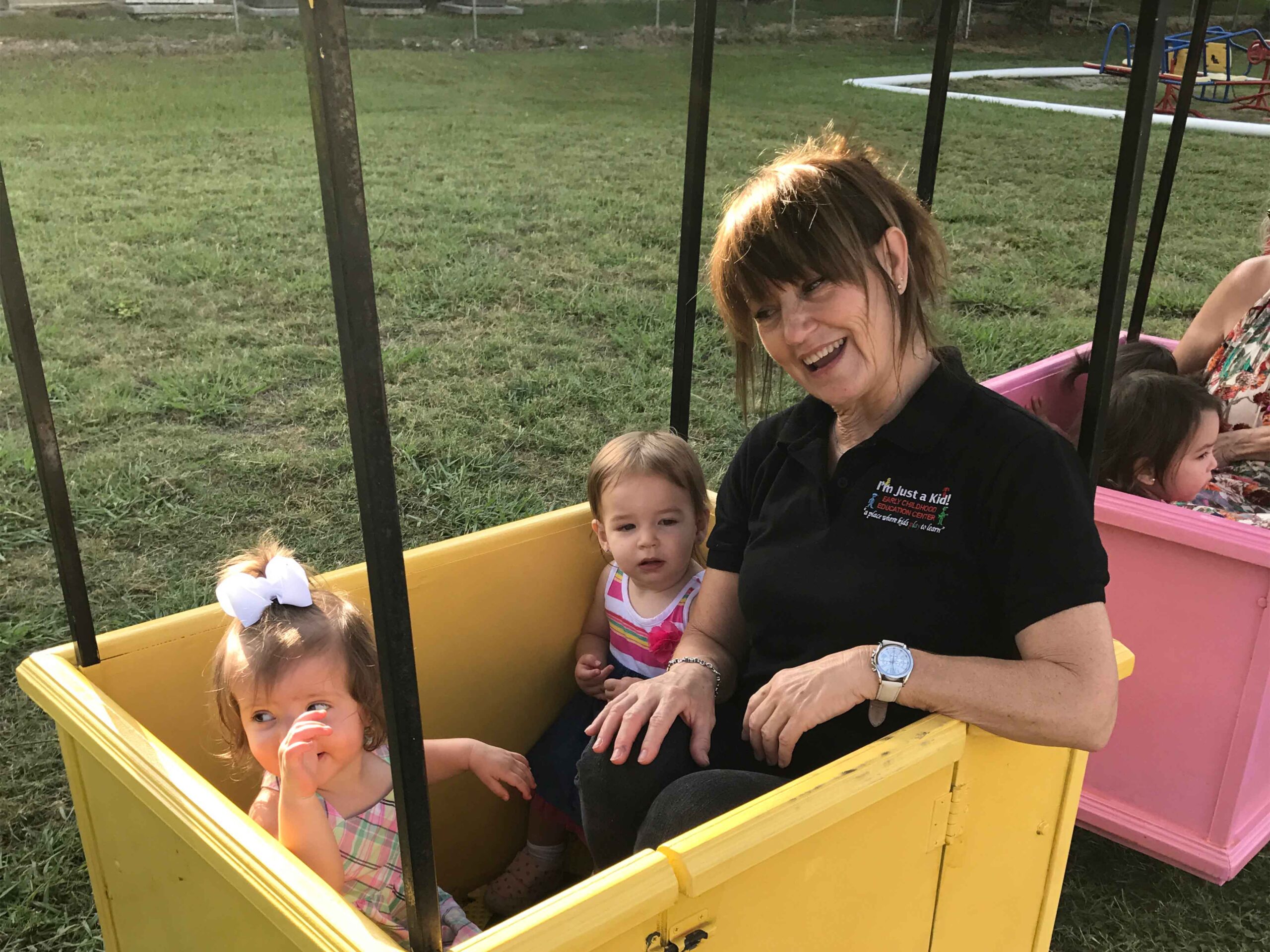
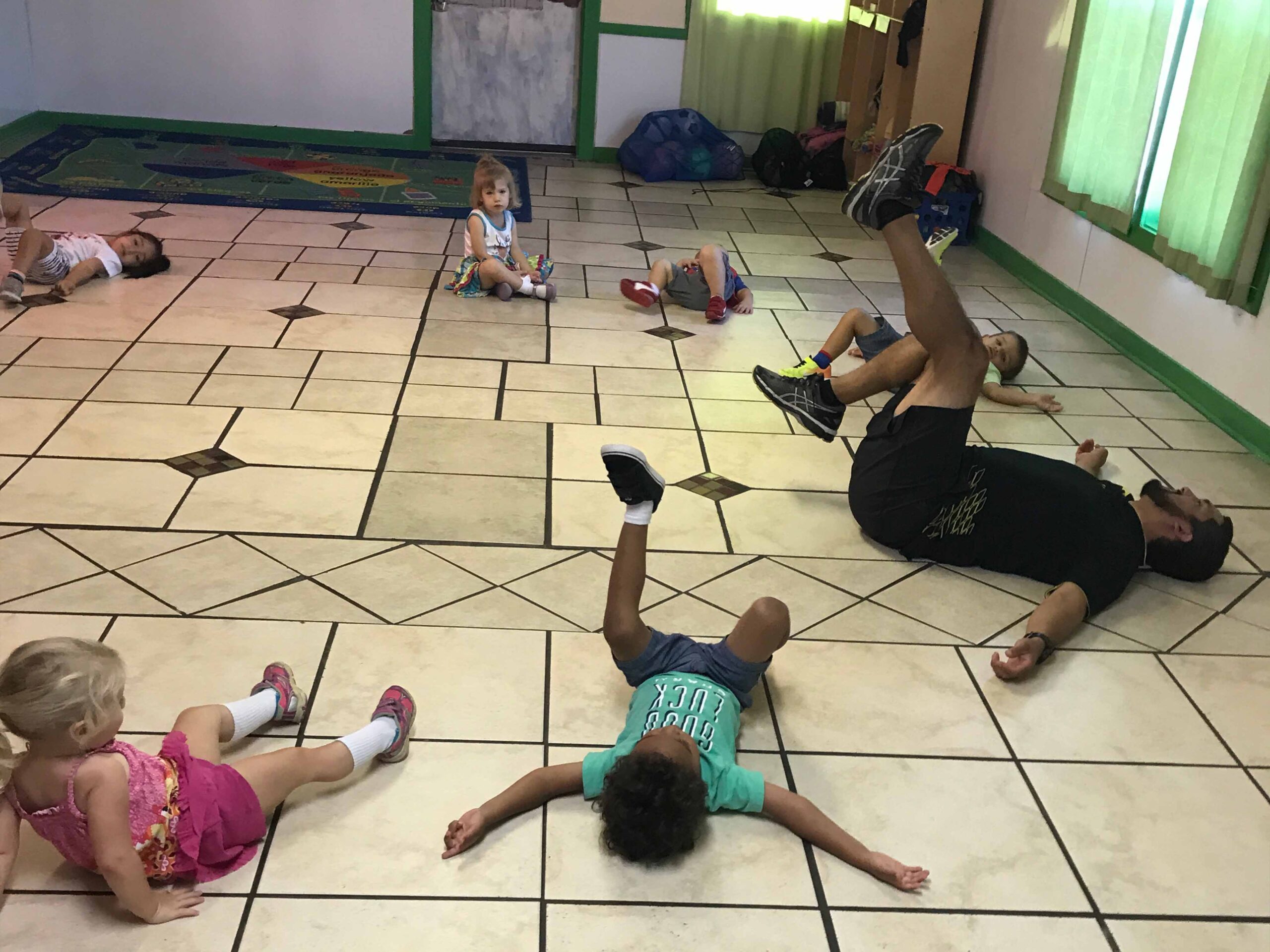
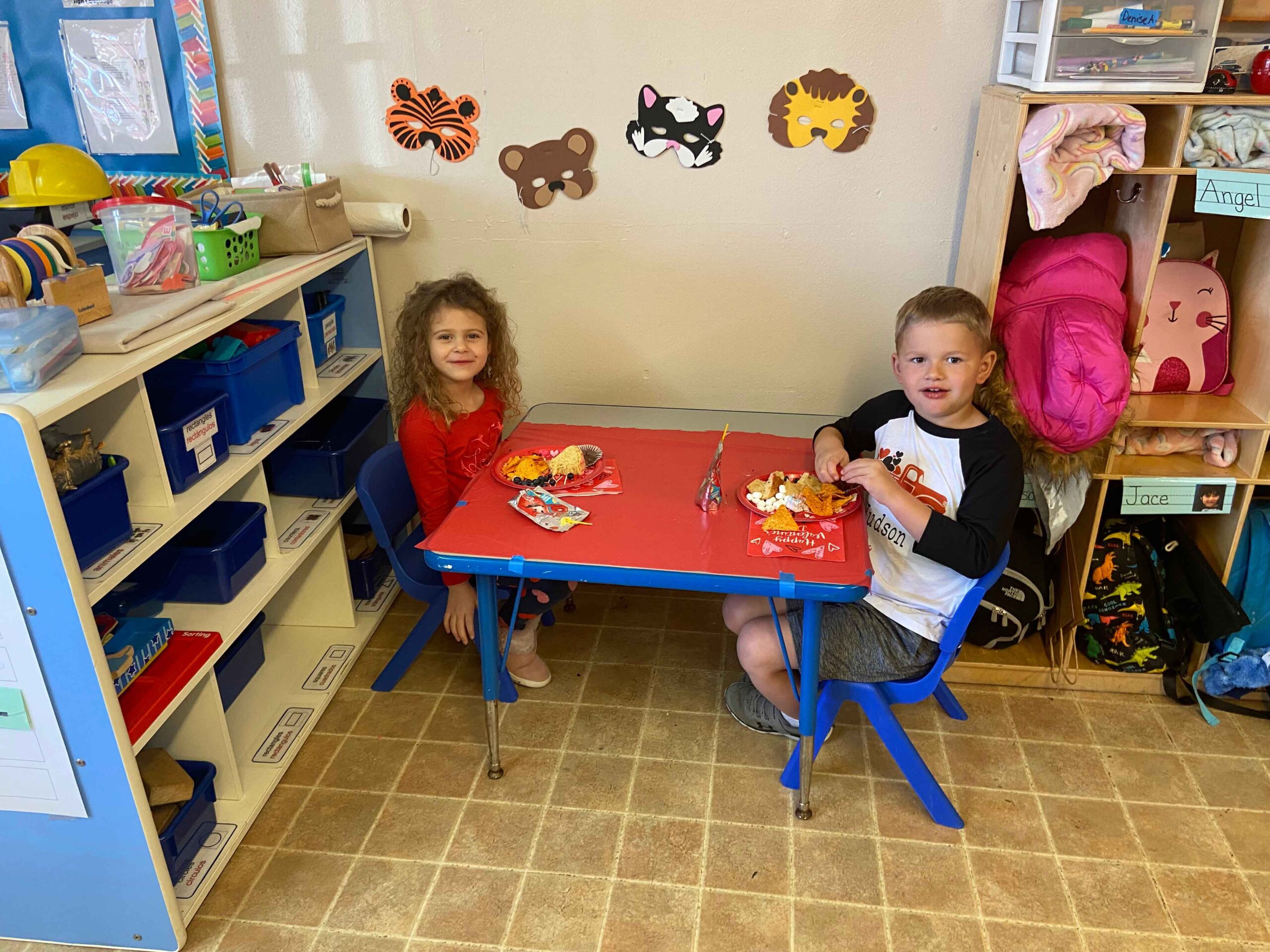
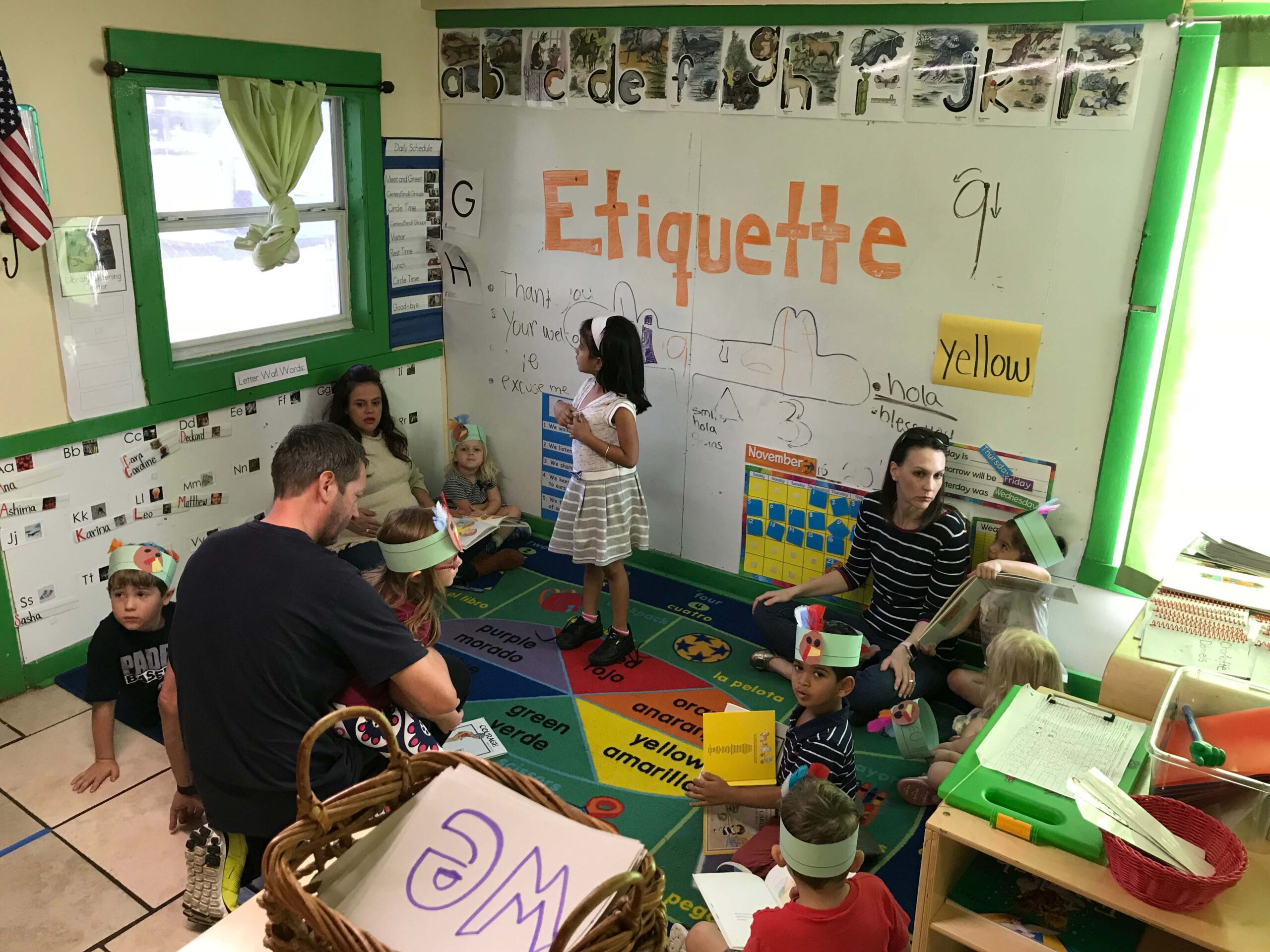
Additional Resources


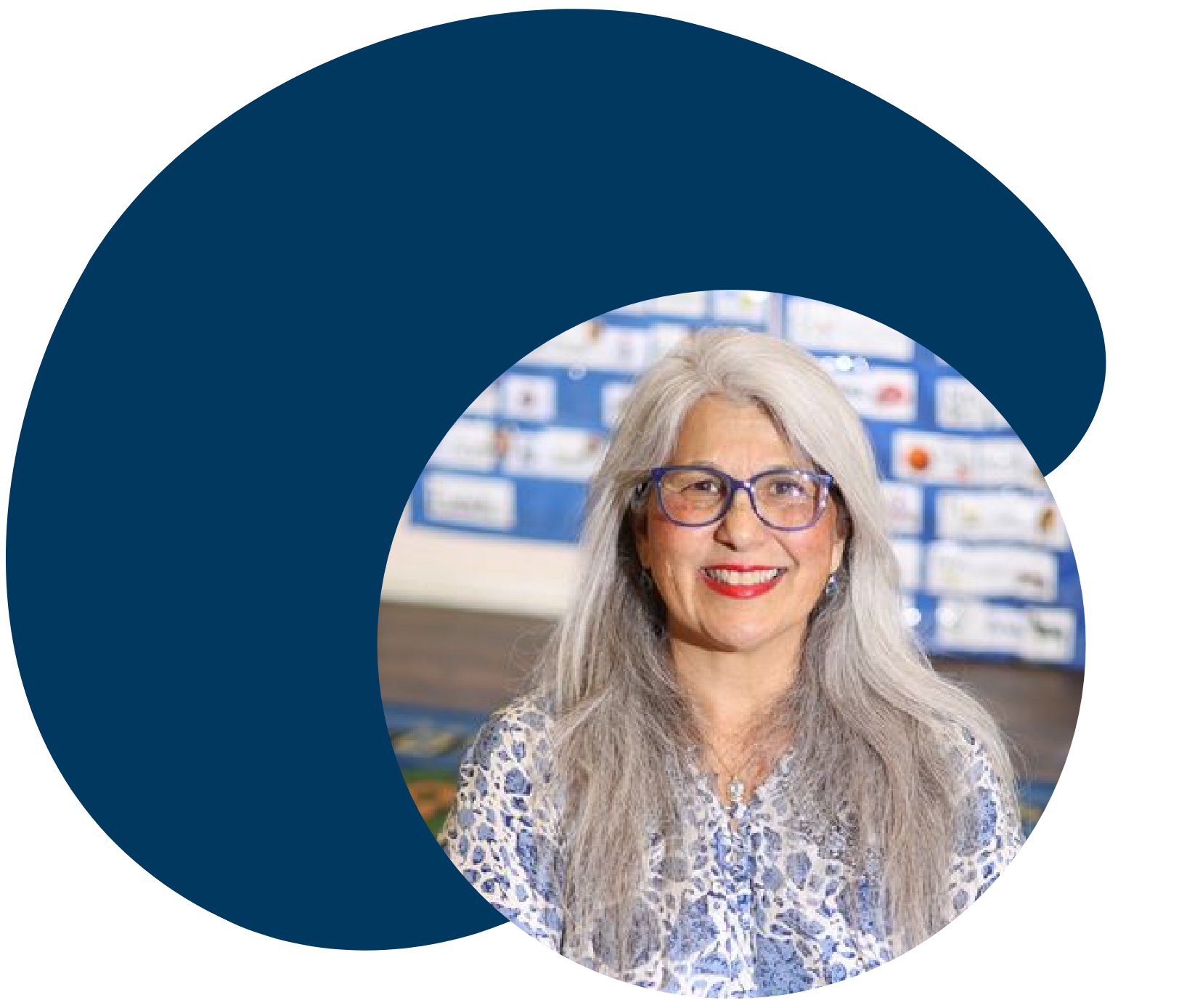
Vicki Aguirre Cox
Founder & Curriculum Creator
Vicki “Ms.Vicki” Aguirre Cox has over 50 years of experience in public schools, non-profits, and institutions of higher learning.
She has taught people of all ages, from infants to adults, in all socioeconomic settings, and of all abilities. Her passion is to teach from the heart while utilizing evidence-based practices. Her passion for early childhood education is rooted in the understanding that infant development creates the foundation for lifelong learning. She holds advanced graduate degrees in the areas of early childhood, special education, and leadership studies. She is a sought-after national consultant in the field of early childhood education and is published in children’s books, infant brain research, and curriculum. She resides in San Antonio.

